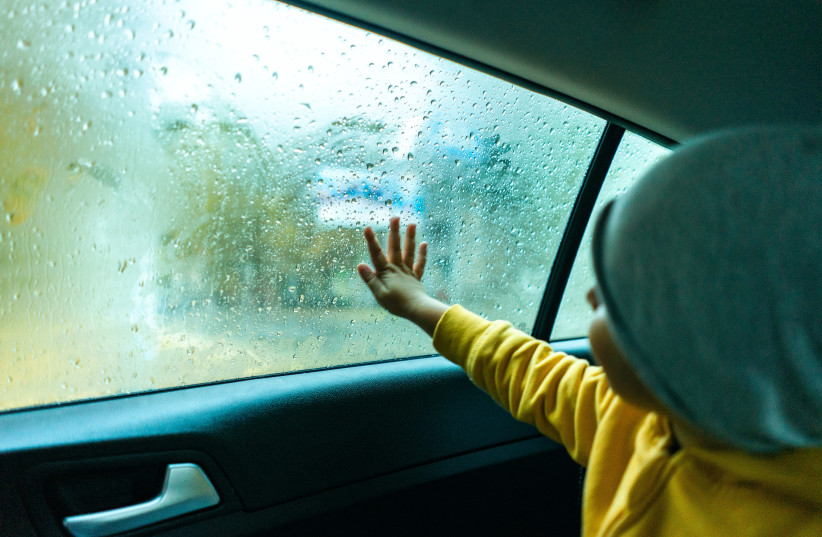The moment her grand-daughter was born, Olha Lukina, 65, rushed to a registry office. It was one of the last still providing Ukrainian citizenship for newborns in the southern city of Kherson which was then under Russian occupation.
Baby Kateryna became Ukraine's newest citizen that day in May, born into one of the country's darkest times.
Later in the occupation, Russia required all newborns to receive Russian citizenship, said Leonid Remyga, chief doctor at Kherson City Clinical Hospital, the city's only working hospital.
Russia occupied Kherson for eight months last year until Ukrainian soldiers recaptured it in November. Many residents initially returned, but Kherson is more like a ghost town now due to shelling by Russian troops across the Dnipro River.
Early in the occupation, Ukrainian parents faced pressure to accept Russian citizenship for their newborns. According to Remyga and Kateryna's parents - Natalia Lukina and Oleksii Markelov - this included denying them free distribution of diapers and baby food.

It is an example of how residents of towns and cities in Ukraine's east and south that Russian forces captured had to navigate sudden and sometimes dangerous changes in rules and demands made by the occupiers.
"When we asked for diapers, the Russians told us, 'If you come without Russian birth certificates, we will not give you diapers'," said Natalia Lukina, 42.
Most parents of small children, with little income during the war, accepted free diapers from Russians, Lukina's partner Oleksii Markelov, said. "There wasn't a penny of money."
Reuters could not independently corroborate their account.
Russia's intelligence service, the FSB, which helps enforce rules in occupied territories in Ukraine, did not respond to a request for comment on the residents' account.
Lukina refused to change the birth certificate of her daughter, who was born two months after Russia captured Kherson.
Reuters has seen Kateryna's Ukrainian documentation, stamped by Ukraine's justice ministry. The ministry did not respond to a request for comment on the situation in Kherson during Russian occupation.
"We told (Russians) that the baby was born in Ukraine and is Ukrainian, not Russian," Lukina said in an interview in her cramped home, where she and Markelov live with their three children and her elderly mother Olha, without electricity or running water.
The house is just 1.5 km (one mile) from the Russian-controlled side of the Dnipro, from where troops fire artillery at Kherson daily.
'Threats' and 'propaganda'
The doctor Remyga said he still applied Ukrainian laws early in the occupation, until soldiers suspended him from his job on June 7.
"They conducted such a propaganda campaign, that Russia is here forever," Remyga told Reuters at the hospital. "But then FSB officers would threaten that if (families) did not receive Russian documents they would have problems."
Remyga said he fell ill in June and spent a month in hospital under soldiers' watch. He managed to escape the following month.
He said FSB officers arrested him on Sept. 20, cuffed him and pulled a bag over his head, before driving him to an unknown detention center, where he was interrogated.
The officers released him in early October and forbade him to return to work at the hospital, he said.
Remyga said he was back on the job on Nov. 12, the day after Ukraine recaptured Kherson.
The FSB did not respond to a request for comment on Remyga's account.
In Ukrainian hospitals, parents receive a basic medical record of their baby's birth but must go to a registry office for the birth certificate of a citizen of Ukraine, conferring citizenship.
During the occupation, many parents delayed visiting Russian-controlled registry offices, said Olena Klimenko, head of Kherson's regional registration office.
Once the occupation ended, many of those parents registered their babies for Ukrainian citizenship, Klimenko said. She did not have precise statistics.
It is unclear how many babies received Russian citizenship, because Russian officials recorded them and Ukrainian registration workers did not cooperate with them, Klimenko said.
Before the war, an average of 1,200 babies were born at Kherson City Clinical Hospital per year, but the number dropped to 489 births in 2022, according to Remyga.
He said the drop reflected the fact that many mothers left to give birth in Ukrainian-controlled parts of the country, or abroad.
